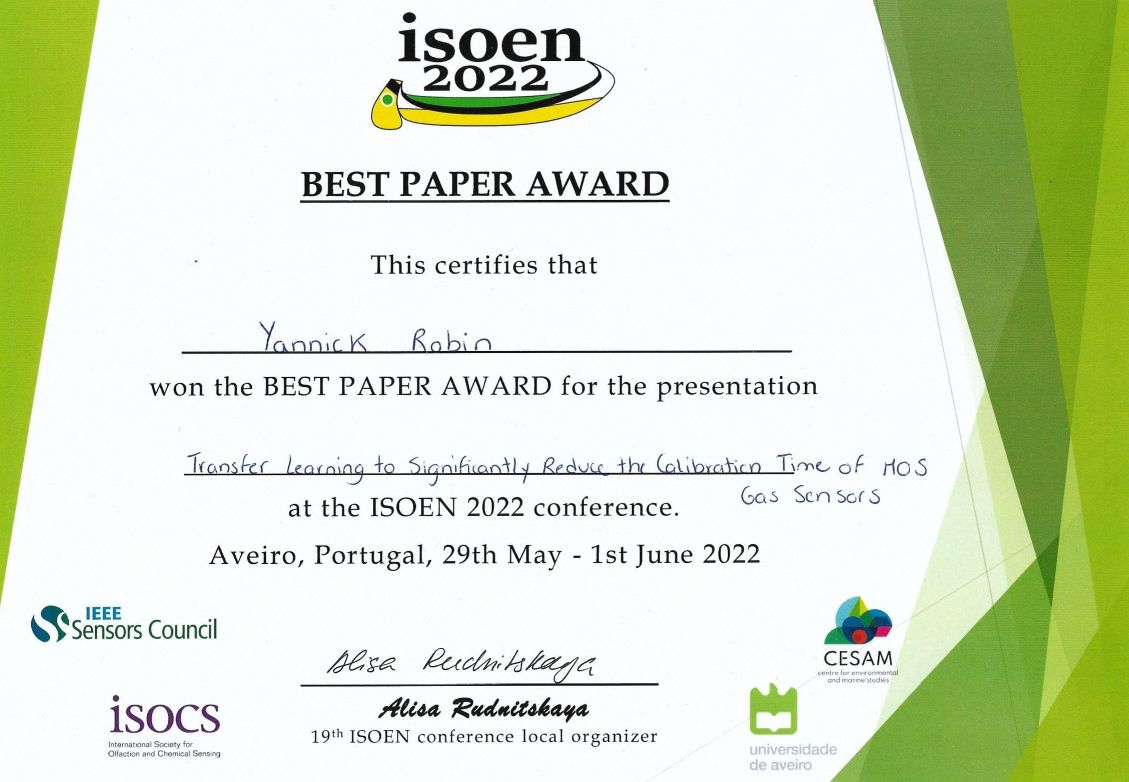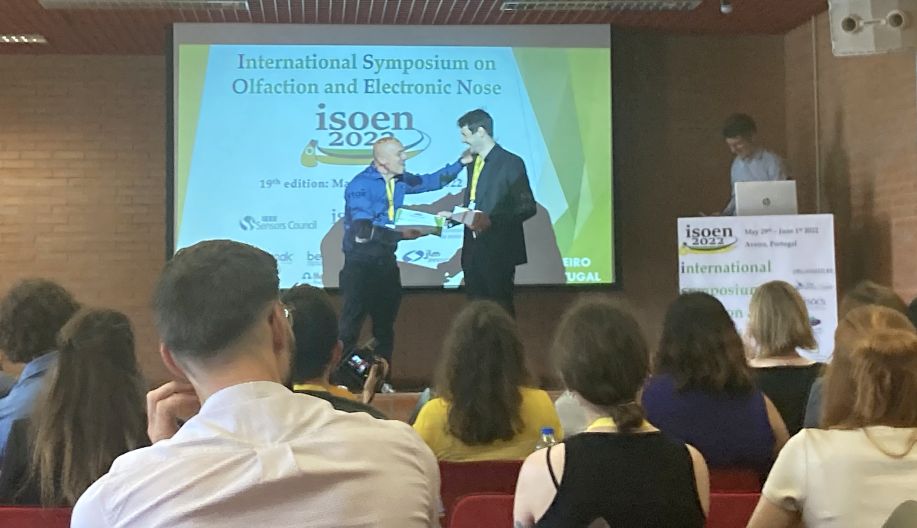The IEEE I2MTC – International Instrumentation and Measurement Technology Conference – is the flagship conference of the IEEE Instrumentation and Measurement Society and is dedicated to advances in measurement methodologies, measurement systems, instrumentation and sensors in all areas of science and technology.

LMT has presented three contributions at this conference, all with a focus on machine learning for smart sensors from our DESS group:
Micro and Nano Engineering (MNE) is the core international conference focusing on micro- and nano-fabrication, manufacturing techniques, as well as applications of the fabricated micro/nanostructures, devices and microsystems into electronics, photonics, energy, environment, chemistry and life sciences. In September 2022, MNE is jointly organized with Eurosensors, leading to an exceptional event tagged as MNE-EUROSENSORS 2022. The conference will be held in beautiful Leuven, close to Brussels, in Belgium.
 Yannick Robin received the BEST PAPER AWARD at ISOEN 2022 for the oral contribution:
Yannick Robin received the BEST PAPER AWARD at ISOEN 2022 for the oral contribution:
Congratulations on this outstanding achievement and recognition for applying advanced deep learning technologies to gas measurement systems with high practical relevance!
 Yannick received the award from newly elected ISOCS president Saverio De Vito during the closing ceremony of the conference.
Yannick received the award from newly elected ISOCS president Saverio De Vito during the closing ceremony of the conference.
Further reading:
Y. Robin, J. Amann, T. Baur, P. Goodarzi, C. Schultealbert, T. Schneider and A. Schütze:
High-Performance VOC Quantification for IAQ Monitoring Using Advanced Sensor Systems and Deep Learning
Atmosphere (2021) 12(11), 1487, DOI 10.3390/atmos12111487
From May 29 to June 1, ISOEN 2022, the International Symposium on Olfaction and Electronic Noses, will be held in Aveiro, Portugal. ISOEN is the world’s premiere technical conference in artificial chemoreception (olfaction and taste). ISOEN 2022 provides a forum for scientists, engineers and practitioners to share their latest findings, innovations and products in the area of artificial chemoreception.
LMT will present several contributions in this conference:
Wolfhard Reimringer, Julian Joppich, Martin Leidinger, Caroline Schultealbert, Andreas Schütze and Thorsten Conrad:
A Modular Sensor System Design for Instrumental Odor Monitoring
oral presentation
Yannick Robin, Johannes Aman, Payman Goodarzi, Andreas Schütze and Christian Bur:
Transfer Learning to Significantly Reduce the Calibration Time of MOS Gas Sensors
oral presentation
Julian Joppich, Oliver Brieger, Ksenia Karst, Daniel Becher, Christian Bur, Andreas Schütze
MOS Gas Sensors for Food Quality Monitoring using GC-MS and Human Perception as Reference
oral presentation
Julian Joppich, Wolfhard Reimringer, Thorsten Conrad, Bettina Mannebeck, Christoph Mannebeck, Christian Bur, Andreas Schütze
Calibration of Sensor Systems for Odor Monitoring: an Approach and its Limits
poster presentation
ASIC, the Air Sensors International Conference, will take place in Pasadena, USA from May 11 to 13.
ASIC will bring together stakeholders from academia, government, communities, and commercial interests to promote and advance air pollution sensors, improve the data quality from these sensors, expand the pollutants measured, and foster community involvement in monitoring air quality.
Hosted by the University of California, Air Quality Research Center.
LMT will present several contributions in this conference, mainly in session 4C: Indoor Sensing for Air Quality Control and Ventilation Applications (May 12):
Johannes Amann, Tobias Baur, Caroline Schultealbert, Christian Bur, Andreas Schütze:
Low-cost high-performance VOC sensor systems: comparison with analytical measurements and long-term stability
oral presentation
Christian Bur, Tobias Baur, Johannes Amann, Christian Meyer, Andreas Schütze:
Standardized test instructions and test gases for VOC detectors for indoor air quality measurement
oral presentation
Johannes Amann, Tobias Baur, Christian Fuchs, Christian Bur, Andreas Schütze:
Sensor Control - a versatile platform for high-performance, low-cost AQ multisensor systems
poster presentation